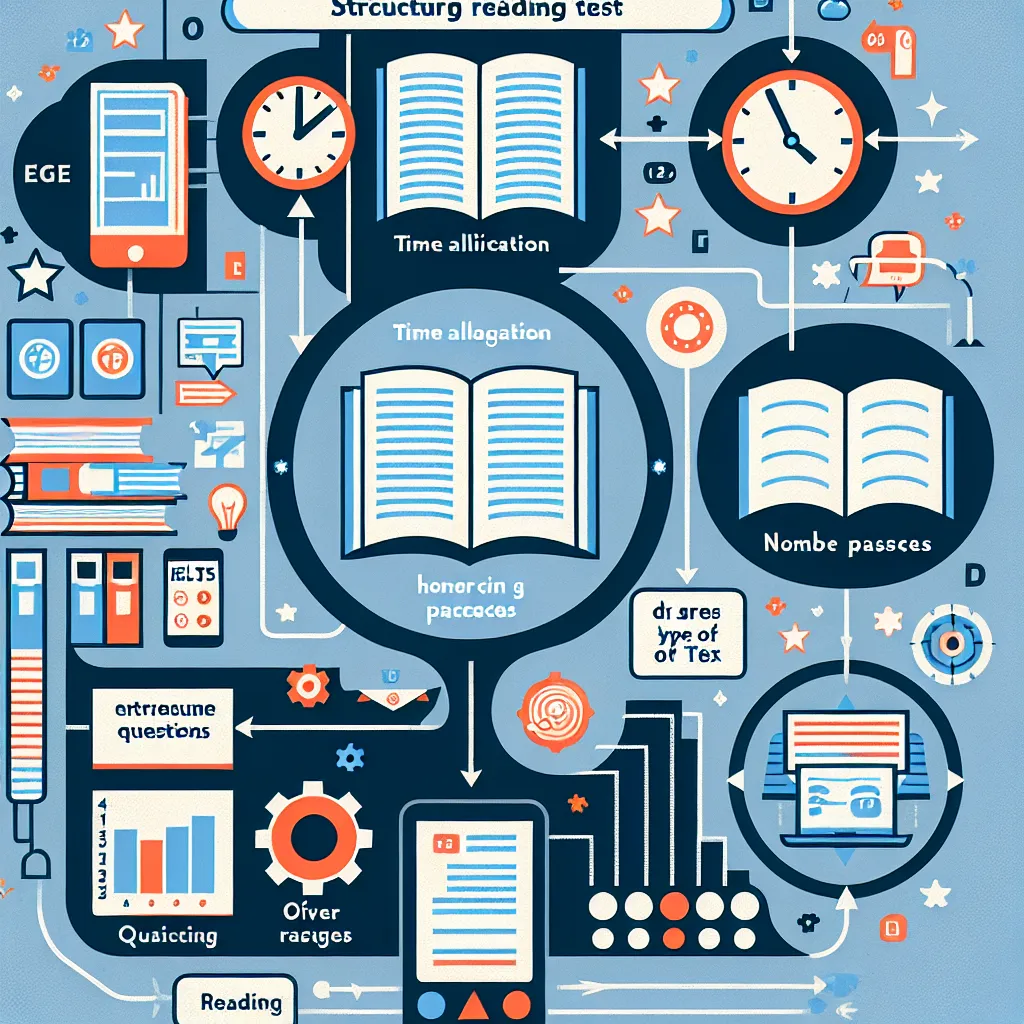Are you gearing up for the IELTS exam and feeling overwhelmed by the reading section? You’re not alone. The IELTS reading test can be challenging, but with the right preparation strategies, you can significantly improve your performance. This comprehensive guide will walk you through effective methods to prepare for the IELTS reading test, helping you boost your confidence and score higher.
Understanding the IELTS Reading Test
Before diving into preparation techniques, it’s crucial to understand what the IELTS reading test entails. The Academic and General Training versions differ slightly, but both assess your ability to read and understand various texts.
Key Features of the IELTS Reading Test:
- Duration: 60 minutes
- Number of questions: 40
- Text types: Varies from academic articles to general interest pieces
- Question formats: Multiple choice, matching, true/false/not given, and more

Effective Preparation Strategies
1. Develop a Reading Habit
One of the most effective ways to prepare for the IELTS reading test is to cultivate a regular reading habit.
- Read diverse materials: Newspapers, academic journals, magazines, and novels
- Focus on topics similar to those in IELTS: Science, technology, social issues, and culture
- Practice active reading: Take notes, summarize main ideas, and reflect on what you’ve read
2. Improve Your Vocabulary
A strong vocabulary is crucial for understanding complex texts and answering questions accurately.
- Learn new words in context: Instead of memorizing lists, learn words as you encounter them in your reading
- Use vocabulary apps: Tools like Quizlet or Anki can help with spaced repetition learning
- Create a personal word bank: Keep a record of new words you encounter and review them regularly
3. Master Time Management
The IELTS reading test is timed, so managing your time effectively is essential.
- Practice with a timer: Set 20 minutes for each passage when practicing
- Skim and scan: Learn to quickly identify main ideas and specific information
- Allocate time wisely: Don’t spend too long on difficult questions; move on and return if time allows
4. Familiarize Yourself with Question Types
The IELTS reading test includes various question formats. Understanding these can help you approach each question more efficiently.
- Study each question type: Multiple choice, matching headings, true/false/not given, etc.
- Practice specific strategies for each type: For example, for true/false/not given questions, look for exact matches or contradictions in the text
5. Enhance Your Reading Speed
Improving your reading speed can give you more time to answer questions thoroughly.
- Use a finger or pen to guide your eyes: This can help increase your reading speed
- Practice timed reading: Set goals to read passages within specific time frames
- Focus on understanding, not just speed: Aim for a balance between speed and comprehension
6. Take Practice Tests
Regular practice with authentic IELTS materials is crucial for success.
- Use official IELTS practice materials: These accurately reflect the test format and difficulty
- Simulate test conditions: Take full-length practice tests under timed conditions
- Analyze your performance: Review your answers, identify patterns in your mistakes, and focus on improving weak areas
Advanced Techniques for IELTS Reading Success
1. Develop Critical Reading Skills
Go beyond surface-level understanding to analyze and evaluate texts critically.
- Question the author’s intent: Consider why certain information is included
- Look for patterns and relationships within the text
- Practice inferencing: Draw conclusions based on the information provided
2. Improve Your Grammar Knowledge
A solid grasp of English grammar can help you understand complex sentence structures often found in IELTS reading passages.
- Study advanced grammar points: Focus on areas like conditionals, relative clauses, and passive voice
- Analyze sentence structures in your reading: Break down complex sentences to understand their components
3. Learn to Paraphrase
The IELTS often uses paraphrasing in questions and answer choices. Developing this skill can help you match question wording with text content.
- Practice rewording sentences without changing their meaning
- Look for synonyms and alternative expressions in texts
4. Develop Prediction Skills
Before reading a passage in detail, try to predict its content based on titles, headings, and any visual information.
- Skim the first and last paragraphs quickly
- Look at any charts, graphs, or images accompanying the text
- Use this information to form a general idea of the passage’s main topics
Common Pitfalls to Avoid
- Spending too much time on difficult questions
- Not reading instructions carefully
- Failing to transfer answers accurately to the answer sheet
- Letting unfamiliar vocabulary discourage you
- Not managing time effectively across all three passages
Next Steps in Your IELTS Reading Preparation
Now that you’re equipped with these strategies, it’s time to put them into practice:
- Create a study schedule: Allocate regular time for reading practice
- Set specific goals: For example, aim to improve your reading speed by 10% in two weeks
- Join IELTS study groups or forums: Share experiences and tips with other test-takers
- Consider taking a mock test: Assess your current level and identify areas for improvement
Remember, consistent practice and a strategic approach are key to succeeding in the IELTS reading test. Stay motivated, track your progress, and don’t hesitate to seek help when needed. With dedication and the right preparation techniques, you can significantly enhance your performance and achieve your desired IELTS score.
Are you ready to take your IELTS reading preparation to the next level? Start implementing these strategies today, and watch your confidence and skills grow. Good luck with your IELTS journey!